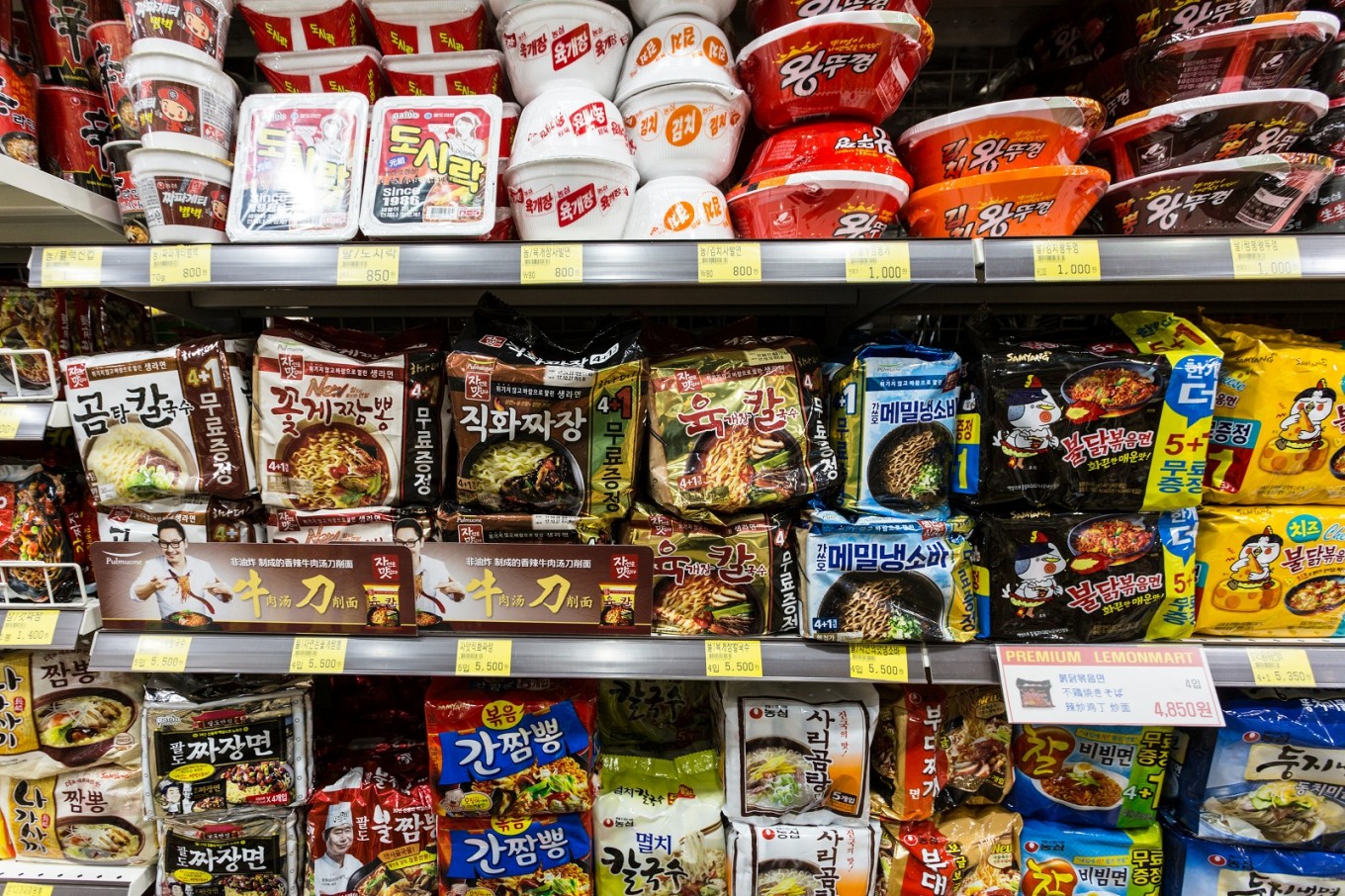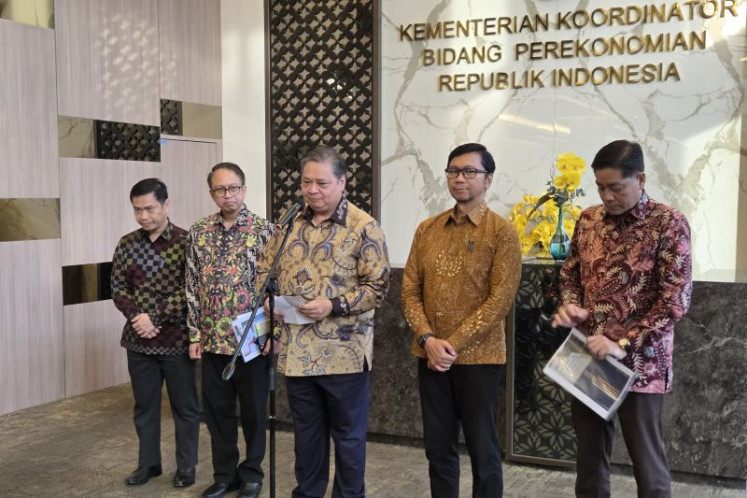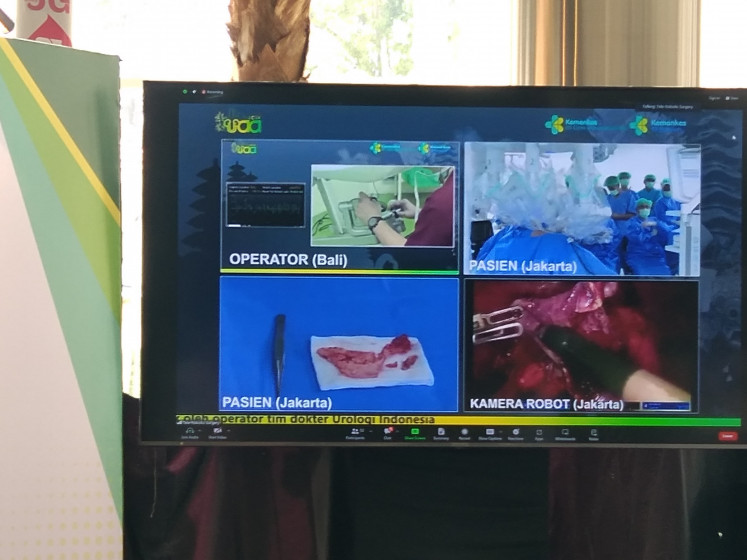Popular Reads
Top Results
Can't find what you're looking for?
View all search resultsPopular Reads
Top Results
Can't find what you're looking for?
View all search resultsThree tips to help spot halal Korean instant noodles
Here are three tips to help ensure Korean food is halal.
Change text size
Gift Premium Articles
to Anyone
 Instant noodles of various brands are displayed in a supermarket in Seoul, South Korea, on May 13. The Food and Drug Monitoring Agency (BPOM) recently announced that several Korean instant noodles contained pork without displaying a clear label, despite a 2016 regulation stipulating the requirement. (Shutterstock/File)
Instant noodles of various brands are displayed in a supermarket in Seoul, South Korea, on May 13. The Food and Drug Monitoring Agency (BPOM) recently announced that several Korean instant noodles contained pork without displaying a clear label, despite a 2016 regulation stipulating the requirement. (Shutterstock/File)
A
long with the wave of Korean pop culture that brought music, TV series, fashion trends and makeup to Indonesian audiences, Korean cuisine is making headway in popularity, including packaged food products.
Scenes in Korean drama programs in which characters enjoy a bowl of noodles have inspired some viewers to do the same.
On social media, the "Samyang Challenge" trend quickly took hold, which saw people devouring the South Korean spicy "fire noodles" as fast as they could.
The Food and Drug Monitoring Agency (BPOM), however, recently announced that several Korean instant noodles contained pork without displaying a clear label, despite a 2016 regulation stipulating the requirement.
The agency has subsequently revoked the distribution licenses for four instant noodles products, including Samyang's U-Dong and Kimchi-flavored instant noodles, Nongshims's Shin Ramyun Black instant noodles and Ottogi's Yeul Ramen.
Here are three tips to ensure Korean food is halal, as compiled by Antara news agency.
Spot the halal logo
Several products are clearly labelled halal by displaying a logo depicting a green and white image of a mosque and the word "HALAL."
Samyang's spicy Buldak used for the Samyang Challenge has a halal and non-halal version. Samyang Buldak products that do not contain the halal logo are presumed to be haram, according to Instagram account @jeomsimid, or Jeomsim ID, which imports Korean products into Indonesia.
A post shared by Korean Snack Importir (@jeomsimid) on
Read also: 5 Korean restaurants in Jakarta to try this weekend
Read the food label
It may be useful to learn some written Korean words to make sure of the food composition, which may not all be translated into Indonesian or English on imported products, according to Jeomsim ID.
"I always avoid the words 돼지 고기 (dwaeji gogi) [which means] pork and 술(sul) [which means] alcohol," said Hafifah Rizky, a fan of Korean food.
In addition to pork and alcohol, ensure that there is no 돈지 (donji), or lard, written on the back of the packaging. Some dessert products may also contain gelatin, which is made from pig parts.
Get help from technology
An application called Halal Korea, available for Android and iOS devices, helps ensure that food is halal, which works by scanning the barcode of a South Korean product.
Users can choose from various filters to be detected, including halal certification, artificial ingredients, alcohol, pork and pork derivatives.
The scan gives a green display when the ingredients are safe to eat and red when there is any undesirable ingredient.
The application is also able to notify the user if the food is produced in a factory where other food products that are not halal are also processed, which could leave undesired traces.
Products that do not contain pork may also be marked "contains traces of pork" by the application, according to Antara news agency. (liz/kes)









